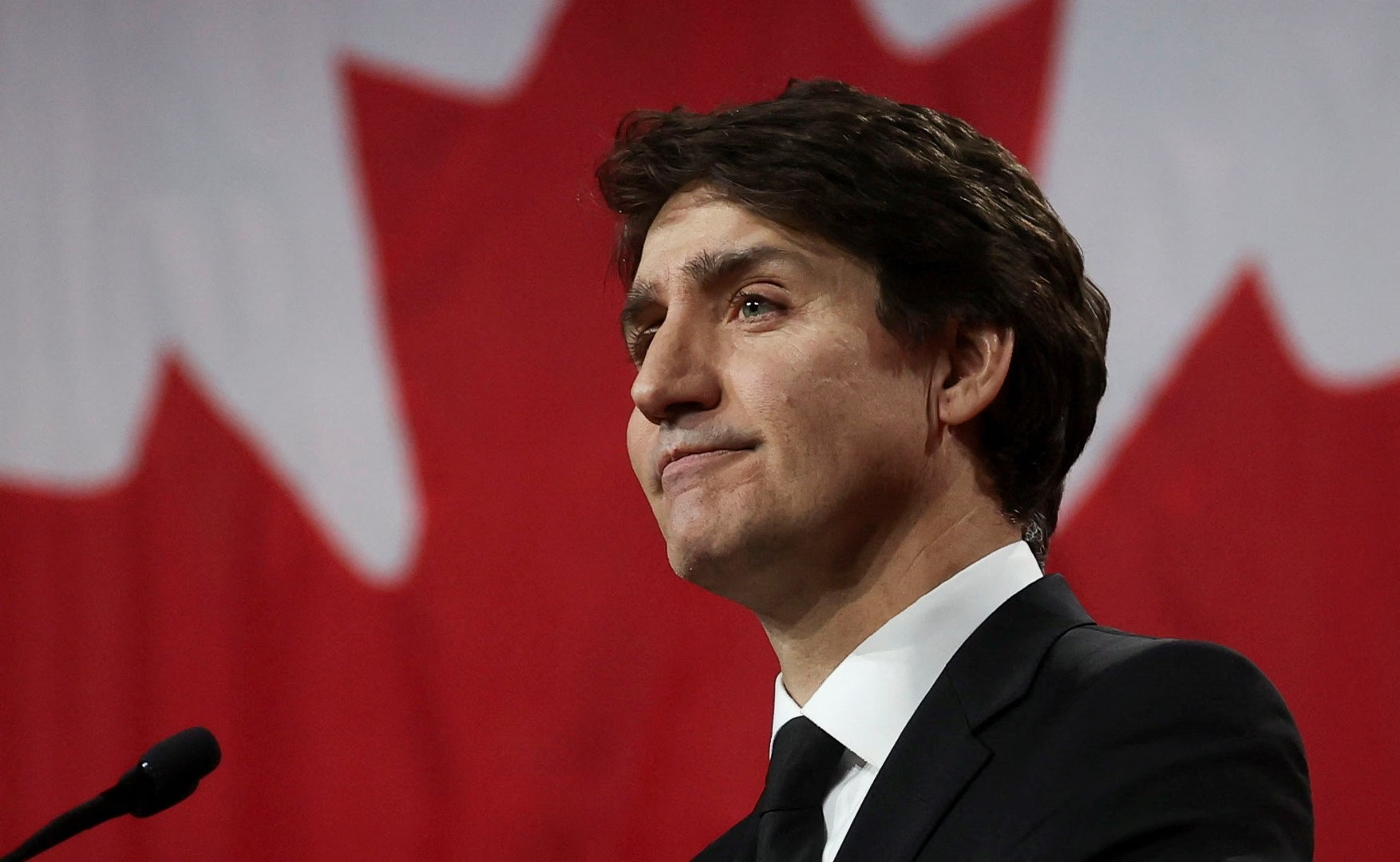Montreal, Canada – The announcement by Justin Trudeau in early January that he would resign as Canada’s prime minister already feels like a lifetime ago for many Canadians. Since then, the country has faced a series of unprecedented shifts coming from the United States, including the prospect of a prolonged trade war and threats from U.S. President Donald Trump to annex Canada, fueling widespread anger and uncertainty.
As Trudeau prepares to formally step down, clearing the way for Mark Carney to become the new Liberal Party chief and prime minister, experts argue that Trudeau’s handling of the recent turmoil will be viewed positively. According to Charles-Etienne Beaudry, a political science professor at the University of Ottawa, Trudeau’s efforts to communicate with Canadians and organize the response to Trump’s tariff threats were commendable and demonstrated great character.
Despite pressure from within his own party and declining poll numbers due to frustrations over affordability and a housing crisis, Trudeau initially resisted calls to resign. However, Trump’s tariff threats and the resignation of Trudeau’s longtime deputy, Chrystia Freeland, accelerated the pressure. Trudeau announced his intention to step down once the Liberals chose their next leader, citing the need for the party to have a real choice in the next election without internal battles.
Strong Response With the announcement of his resignation, Trudeau’s approach changed. No longer burdened by internal attacks and pressures, he became a symbol of Canada’s resistance to Trump. Trudeau was able to stand up for Canadians, emphasizing unity and rejecting Trump’s push to integrate Canada as the 51st U.S. state. His speeches were reassuring, pledging support for workers and businesses affected by US tariffs and promising strong countermeasures.
Anticipating the possibility of retaliatory measures, Trudeau’s message was clear about standing up for Canadian interests. His actions were seen as a rejuvenation of his leadership, with many viewing his approach in dealing with the crisis akin to his response during the early months of the COVID-19 pandemic.
Trudeau ‘at His Best’ Trudeau’s resignation, coupled with the threats from Trump and the upcoming Liberal leadership race, renewed enthusiasm within the Liberal Party. The party has seen a rebound in poll numbers and is now expected to have a close fight against the Conservatives in the upcoming election. Shachi Kurl, president of the Angus Reid Institute, noted that Trudeau’s crisis management and communication to the public were particularly effective during this period, highlighting the majority support for his government’s response to the Trump administration.
In conclusion, despite a mixed legacy from his nine years in government, Trudeau’s final weeks as prime minister will likely be remembered positively due to his resolute stance during a renewed sense of national pride and unity.
As Trudeau prepares to formally step down, clearing the way for Mark Carney to become the new Liberal Party chief and prime minister, experts argue that Trudeau’s handling of the recent turmoil will be viewed positively. According to Charles-Etienne Beaudry, a political science professor at the University of Ottawa, Trudeau’s efforts to communicate with Canadians and organize the response to Trump’s tariff threats were commendable and demonstrated great character.
Despite pressure from within his own party and declining poll numbers due to frustrations over affordability and a housing crisis, Trudeau initially resisted calls to resign. However, Trump’s tariff threats and the resignation of Trudeau’s longtime deputy, Chrystia Freeland, accelerated the pressure. Trudeau announced his intention to step down once the Liberals chose their next leader, citing the need for the party to have a real choice in the next election without internal battles.
Strong Response With the announcement of his resignation, Trudeau’s approach changed. No longer burdened by internal attacks and pressures, he became a symbol of Canada’s resistance to Trump. Trudeau was able to stand up for Canadians, emphasizing unity and rejecting Trump’s push to integrate Canada as the 51st U.S. state. His speeches were reassuring, pledging support for workers and businesses affected by US tariffs and promising strong countermeasures.
Anticipating the possibility of retaliatory measures, Trudeau’s message was clear about standing up for Canadian interests. His actions were seen as a rejuvenation of his leadership, with many viewing his approach in dealing with the crisis akin to his response during the early months of the COVID-19 pandemic.
Trudeau ‘at His Best’ Trudeau’s resignation, coupled with the threats from Trump and the upcoming Liberal leadership race, renewed enthusiasm within the Liberal Party. The party has seen a rebound in poll numbers and is now expected to have a close fight against the Conservatives in the upcoming election. Shachi Kurl, president of the Angus Reid Institute, noted that Trudeau’s crisis management and communication to the public were particularly effective during this period, highlighting the majority support for his government’s response to the Trump administration.
In conclusion, despite a mixed legacy from his nine years in government, Trudeau’s final weeks as prime minister will likely be remembered positively due to his resolute stance during a renewed sense of national pride and unity.







